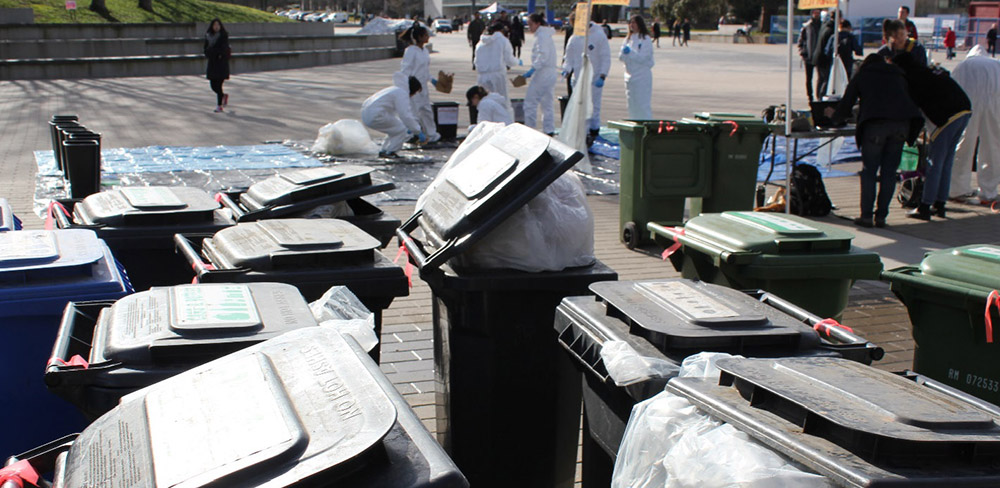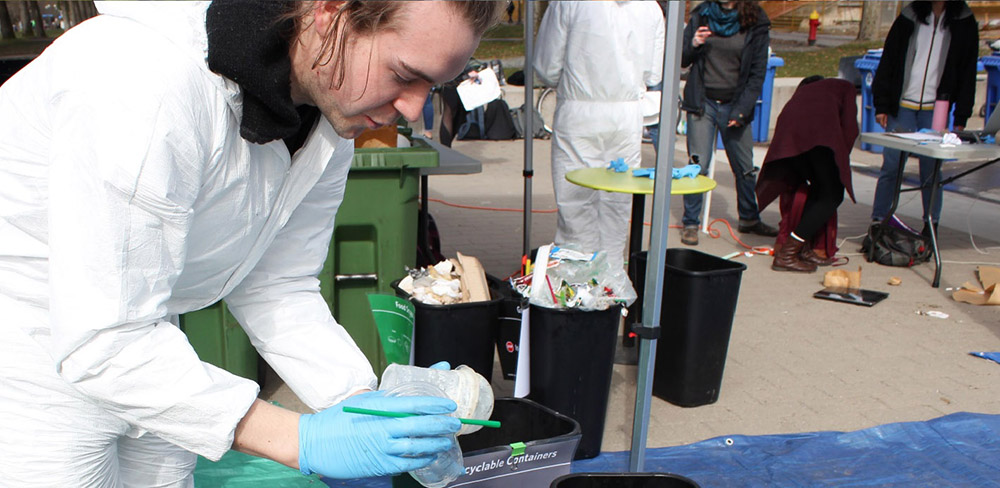
For the fifth annual UBC waste audit, volunteers learnt about our sorting habits by hand-sorting 17 bins of trash, recycling, and food scraps from the AMS Nest.
This year’s waste audit was held on March 5 and was undertaken by several sustainability clubs on campus, including Common Energy, AMS Sustainability, Zero Waste Squad, Melt Collective, and Engineers Without Borders. The audit was conducted by 65 student volunteers who hand sorted heaps of trash and weighed and documented waste found in the AMS Nest.
Sam Tuck, a Sustainability Ambassador and volunteer with Common Energy and UBC’s Sustainability Collective, said the success of the waste audit can be measured in a few ways. “One, it destigmatizes waste, and another is that it gathers specific data on student sorting habits”.
Based on data from last year’s audit, only 22% of items thrown in the garbage were actually garbage and 59% of items were actually compostable. Let’s take a look into how these stats compare to this year’s audit.
The juicy details

Within 24 hours, the UBC community produced over five bins of recycling, four bins of food scraps, and eight bins of garbage waste at the AMS Nest, weighing a total of 197 kg. Photo by Leah Karlberg.
From eight brimming garbage bins, volunteers sorted 124.4 kg of waste and found that 12.8% was properly-sorted garbage, 4.4% was paper, 17.5% was plastic recycling, and 65.2% of waste in the garbage bins was compostable. That works out to 81.1 kg that should have been composted instead of being sent to the landfill!
From the green food scraps bins in the Nest, volunteers sorted 24.7 kg of waste, finding that 97.6% of the waste was correctly sorted, 1.7% was garbage, and 0.7% should have been recycled.
Over 300 disposable coffee cups were counted this year, down 200 from the 2017 waste audit.
Why the audit matters

Patrick Wilkie, a Zero Waste Researcher with UBC Sustainability and Engineering and director of the Melt Collective, sorts out refundable plastics in the photo above. There are many different paths for plastics to be recycled. Some plastics are compostable and end up in the food scraps bins, which Wilkie says is actually problematic because UBC’s composter cannot process these plastics like the City of Vancouver. Photo by Leah Karlberg.
Information collected from waste audits helps UBC to better understand thought patterns around waste sorting, and find ways to improve habits in the future.
“We can see from the data how they’re thinking about it before they sort it”, Tuck says, and “we’re trying to change the way people think about waste, from a linear idea to a circular system”.
Clubs on campus such as the Melt Collective, put the circular system of recycling into action by viewing plastic as a valuable and repurpose-able resource and melting it down into bricks, keychains, surfboards, and more.
These clubs support UBC’s overarching sustainability goals, which include an 80% reduction of waste sent to the landfill by 2020. Other clubs and individuals across campus are supporting this goal in their own way, including PhD candidate Sina Radmard who is developing a robot to help people sort their trash properly.
Diverting food scraps from garbage bins is one important issue to tackle, but another is the sheer amount of plastic that ends up in the green bins. Campus food scrap bins are often too contaminated by plastics and cannot be composted. Important information gathered at the waste audit can inform and support efforts such as Thomas and Thelma, the compost-loving worms that appeared on food scraps bins around campus this spring.
Resources